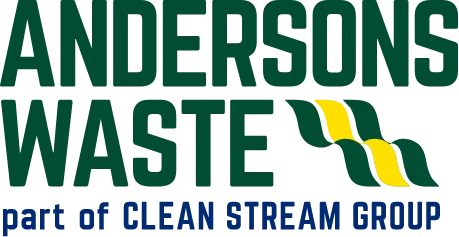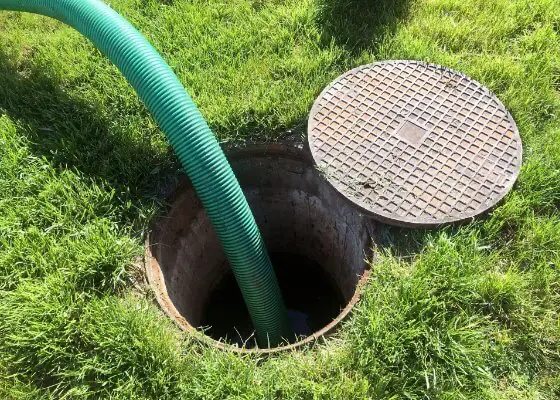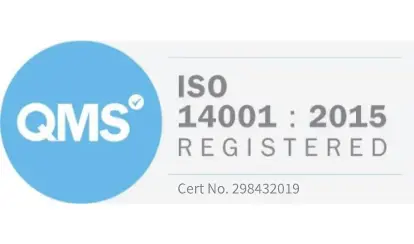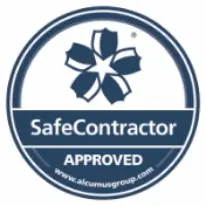
Grease trap services are a crucial part of regular maintenance for busy commercial kitchens, restaurants, cafés and food production facilities, ensuring the safe and efficient management of waste – especially on hot summer days.
Grease traps are one of the most important yet often overlooked pieces of commercial kitchen equipment.
Designed to intercept fats, oils and grease (commonly referred to as FOG), grease traps prevent these substances from entering the drainage system where they can cause significant blockages.
Whether installed in a small café or a large-scale food processing plant, grease traps play a vital role in maintaining hygiene standards, ensuring operational efficiency and complying with UK environmental regulations.
Why Summer Brings Added Pressure
With the warmer weather here, hospitality businesses often see an increase in footfall, particularly those with outdoor dining areas or tourist-heavy locations. This seasonal surge puts added strain on kitchen systems and, by extension, grease traps. Higher volumes of cooking mean more fats, oils and grease entering the waste system, increasing the likelihood of blockages if the trap is not properly maintained.
Planning ahead for seasonal changes by scheduling additional servicing and inspections can help prevent issues from arising when you’re at your busiest. It’s also a great opportunity to ensure your waste management plan is robust enough to handle periods of increased demand.
If you need to speak to us about servicing your grease trap throughout our warm, summer weather, simply give us a call or complete the online form. We will be happy to help.
Different Types of Systems and What Sets Them Apart
Grease traps come in a variety of forms to suit different business sizes and requirements, but they all serve the same core function: separating grease and solids from wastewater before it enters the drainage system.
Traditional passive grease traps are typically installed under sinks or in floor areas, relying on gravity to allow FOG to rise to the top, while solids sink to the bottom. These units are generally more cost-effective but require regular manual cleaning.
On the other hand, automatic grease removal units (AGRUs) offer a more technologically advanced solution by skimming off grease on a programmed cycle, reducing the need for frequent manual intervention.
There are also larger external traps that are fitted outside a property and can handle significantly higher volumes, ideal for bigger establishments. The key differences between these types lie in their capacity, method of separation, maintenance requirements and level of automation.
Why Looking After Your Grease Trap is So Important
Maintaining a grease trap isn’t just a routine chore, it’s an essential part of ensuring a commercial kitchen runs efficiently, safely and without interruption. A well-maintained trap not only helps to prevent unpleasant odours and costly drainage blockages but also supports the longevity of the entire plumbing system. Keeping the trap clean and functioning properly allows it to separate fats, oils and grease as intended, reducing the risk of build-up within both the trap itself and the connected pipework.
This becomes particularly important during the warmer months, when higher temperatures can cause fats to break down more quickly, releasing strong odours and accelerating the formation of sticky residues. At the same time, warmer weather often brings a surge in customers, especially for restaurants, cafés and venues with outdoor seating. This increase in kitchen activity leads to greater volumes of FOG being generated, placing more strain on the grease trap.
If maintenance is overlooked during this period, it can result in slow drainage, kitchen backups at the worst possible times, and even complete system failures just when customer demand is at its highest.
For businesses that depend on fast-paced service and strong customer satisfaction, these kinds of disruptions can be more than a nuisance, they can lead to lost revenue, reputational damage and emergency callout costs. Taking a proactive approach to grease trap maintenance in the summer isn’t just advisable, it’s essential.
The Consequences of Neglecting Your Grease Trap
Failing to maintain your grease trap can have serious repercussions. Over time, if not cleaned properly, grease traps can become clogged, causing water to back up into sinks and floors. This kind of blockage often brings with it foul odours and unhygienic conditions, both of which are damaging to a business’s reputation.
In worst-case scenarios, blocked grease traps can result in the closure of food preparation areas and costly emergency callouts to clear the system. Not only do these situations cause inconvenience and financial loss, but they also pose health risks to staff and customers alike.
In the long term, a lack of maintenance can result in permanent damage to the trap and the surrounding pipework, leading to expensive repairs or replacements that could have been easily avoided with a consistent servicing schedule.
Environmental Consequences of Poor Upkeep
Beyond the operational risks, there are significant environmental concerns tied to grease trap neglect. When FOG is not properly intercepted and enters the public sewer network, it contributes to the formation of fatbergs; large, congealed masses that can clog entire sections of the drainage infrastructure. These blockages are notoriously difficult and expensive to remove, and they pose a considerable threat to the environment by increasing the risk of wastewater overflows and pollution.
Businesses that fail to manage their waste correctly are not only putting their own operations at risk but are also contributing to a broader environmental issue that affects local communities and ecosystems. Maintaining your grease trap is therefore not just about compliance or convenience, it’s part of a wider responsibility to protect public health and the natural world.
Staying Within the Rules: What UK Law Requires
Businesses operating commercial kitchens in the UK are legally required to prevent the discharge of FOG into public sewers under the Water Industry Act 1991. Failing to do so can result in enforcement actions, including fines, clean-up costs and, in some cases, prosecution.
Environmental health officers regularly inspect premises to ensure compliance with this legislation, particularly in areas with a history of fatberg incidents. It’s also worth noting that landlords and water companies may require tenants to install and maintain grease traps as part of lease agreements.
By staying on top of maintenance and keeping records of servicing, businesses can demonstrate due diligence and avoid falling foul of the law.
How Frequently Should Cleaning Take Place?
The frequency with which you need to clean your grease trap depends on the size of your establishment, the volume of food you produce and the type of trap installed. As a general rule, most traps should be cleaned at least every one to three months, but high-traffic kitchens may require more frequent attention.
A good indicator that cleaning is overdue is the presence of strong odours or a noticeable slowing of drainage. Working with a professional waste management provider like Andersons ensures that your grease trap is cleaned at the appropriate intervals, preventing build-ups and helping you to avoid unexpected issues.
What To Expect in The Cleaning Process?
Proper grease trap maintenance involves more than simply emptying the contents. A professional clean includes the removal of grease, oils and solids, followed by a thorough inspection of the trap’s internal components to ensure everything is in good working order.
The trap is then flushed out, deodorised if needed and reassembled. Records are kept of the maintenance carried out, including dates and waste volumes, which may be requested by inspectors or environmental health officers. This process is best handled by one of our qualified and experienced team to ensure full regulatory compliance and environmentally safe disposal of the collected waste.
For expert advice and reliable grease trap maintenance services, Andersons Waste Management is here to help. We work with restaurants, cafés and commercial kitchens across the region, ensuring that their systems run smoothly and meet all regulatory requirements, no matter the season.
Speak to our team today to book the servicing for your grease trap. Simply give us a call on 01454 222 888 or complete our online form. We will be happy to help.





